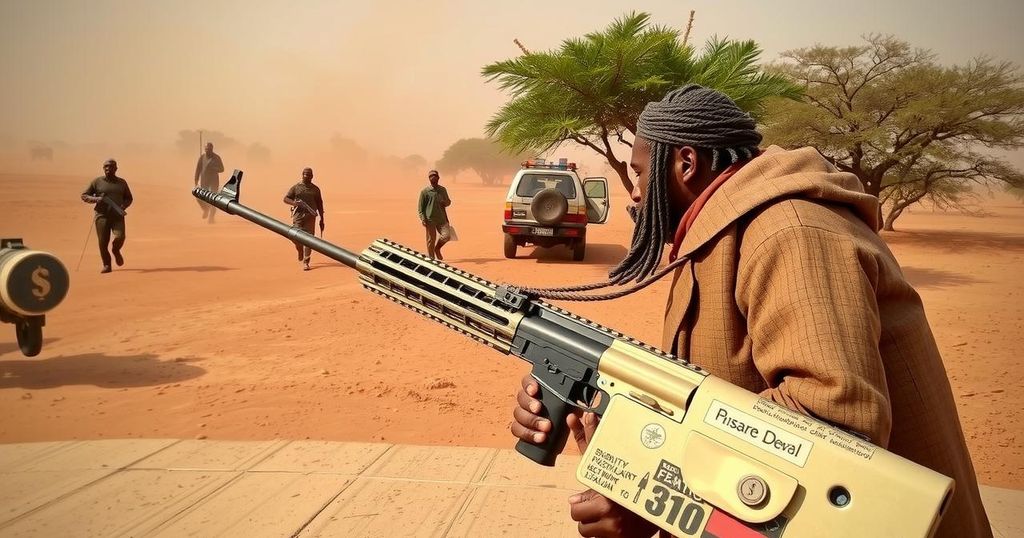Sudan faces a potential de facto partition due to ongoing conflict between the army and the RSF, particularly affecting Darfur’s stability. Analysts warn that this division could lead to further state collapse and increased localized violence. Recent developments, including the loss of key territories by the RSF, signal a complex shift in the power dynamics, while foreign involvement continues to shape the conflict’s trajectory.
As the conflict in Sudan continues to escalate between the Sudanese Armed Forces and the Rapid Support Forces (RSF), analysts warn of a potential de facto partition that could effectively isolate Darfur from the rest of the country. The RSF has secured a strong foothold in the western region, while the army makes progress across other areas, raising concerns about a permanent divide that could exacerbate local conflicts and accelerate state disintegration. Loss of control over key cities could lead to further instability, complicating the path toward peace as the factions entrench themselves in their respective territories.
The RSF has historically been supported by local tribes in Darfur, formed from the notorious Janjaweed militias. Their recent failure to hold onto strategic cities such as Wad Madani underscores their vulnerability, while reports of atrocities committed by both sides highlight a grim reality for the civilian population. With millions displaced and facing extreme deprivation, the situation remains dire, casting doubt on future efforts toward unification under a legitimate governing body.
The international community has taken an active interest in the conflict, with various foreign nations providing support to both factions, which may prolong the fighting rather than facilitate resolution. Analysts suggest that as the RSF consolidates control over Darfur, it may inadvertently empower local militia groups previously aligned with the Sudanese army, leading to increased internal conflict. The resulting infighting could further complicate any prospects for peace, thereby trapping Sudan in a cycle of violence and fragmentation.
The ongoing conflict in Sudan, initiated in April 2023, has escalated tensions between the Sudanese Army and the Rapid Support Forces (RSF), a paramilitary group comprising predominantly Darfuri elements. The backdrop of historical grievances rooted in the War in Darfur has contributed to the complexities of the current violence. The RSF’s origins in the Janjaweed militias, active during the Darfur war, have caused longstanding societal divisions, compounded by the state’s weakened governance and economic decline. The foreign powers’ involvement has also shifted the dynamics of the conflict, setting the stage for potential territorial fracturing within Sudan.
Ultimately, the potential fragmentation of Sudan, particularly if Darfur becomes permanently isolated, raises alarms about a spiraling descent into localized conflicts and state failure. The ongoing violent clashes indicate a severity of humanitarian crises that threaten both regional stability and global security interests. Clearly, the continued conflict carries profound implications for peacebuilding efforts, underscoring the urgent need for a coordinated international response to halt the violence and pave the way for sustainable peace.
Original Source: www.aljazeera.com






